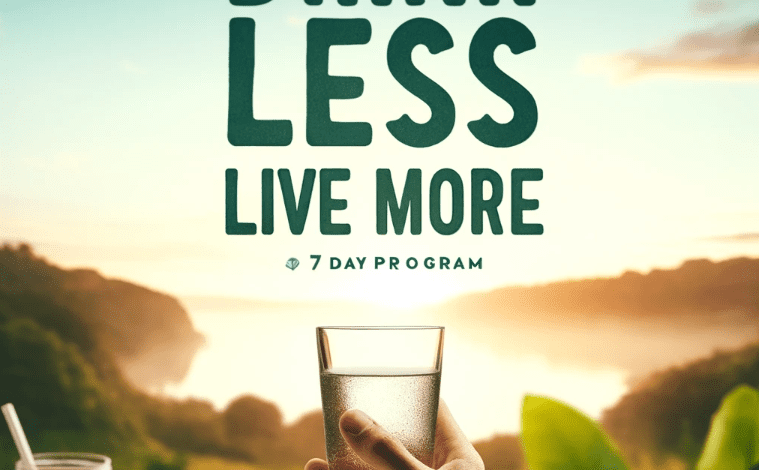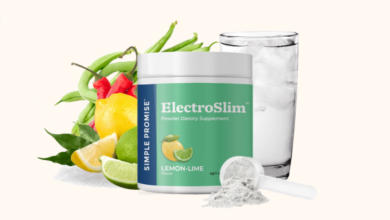
Are you tired of feeling controlled by your cravings and habits? Are you ready to make a change and embrace a healthier lifestyle? Look no further than the ‘Drink Less’ program. In just seven days, this revolutionary program promises to help you overcome your unhealthy relationship with alcohol and create a new, healthier one.
In this honest review, we will take a closer look at the ‘Drink Less’ program and analyze its effectiveness. We’ll explore how the program works, the science behind it, and whether it truly delivers on its promises.
With ‘Drink Less’, you’ll have access to expert guidance, practical tools, and support every step of the way. No judgment, no guilt—just a supportive community and strategies tailored to your individual needs.
Whether you’re looking to reduce your alcohol consumption or quit altogether, the ‘Drink Less’ program may be the game-changer you’ve been searching for. Say goodbye to destructive habits and hello to a vibrant, healthier lifestyle. Get ready to take control and embark on a transformative journey towards a better, happier you.
Why is reducing alcohol consumption important for a healthier lifestyle?
Alcohol consumption is a prevalent issue that affects individuals and communities worldwide. Excessive drinking can have detrimental effects on physical and mental health, leading to a range of health problems, including liver disease, heart disease, and various types of cancer. Reducing alcohol consumption is crucial for maintaining a healthier lifestyle, as it can improve overall well-being, increase energy levels, and reduce the risk of chronic health conditions.
One of the primary reasons for reducing alcohol consumption is the impact it has on physical health. Alcohol is a depressant that can negatively affect the body’s organs, including the liver, heart, and brain. Chronic alcohol consumption can lead to the development of liver diseases, such as cirrhosis, which can be life-threatening. Additionally, alcohol consumption is linked to an increased risk of heart disease, stroke, and high blood pressure, all of which can have serious consequences for an individual’s overall health.
Beyond the physical impacts, alcohol consumption can also have a significant effect on mental health. Excessive drinking can contribute to the development of anxiety, depression, and other mental health disorders. Alcohol is a known depressant, and it can disrupt the brain’s chemical balance, leading to mood swings, irritability, and difficulty in regulating emotions. Reducing alcohol consumption can help individuals improve their mental well-being, leading to a more positive and fulfilling lifestyle.
Overview of the ‘Drink Less’ program
The ‘Drink Less’ program is a comprehensive approach to helping individuals overcome their unhealthy relationship with alcohol and embrace a healthier lifestyle. Developed by a team of experts in the fields of addiction, psychology, and health, the program offers a structured, evidence-based approach to reducing alcohol consumption and promoting long-term behavioral change.
At the core of the ‘Drink Less’ program is the understanding that overcoming alcohol addiction is not a one-size-fits-all solution. Each individual’s relationship with alcohol is unique, shaped by their personal experiences, environmental factors, and underlying psychological and emotional needs. The program recognizes this and offers a personalized approach, tailoring the strategies and support to the specific needs of each participant.
The ‘Drink Less’ program is designed to be completed over the course of seven days, with each day focusing on a different aspect of the journey towards a healthier lifestyle. Through a combination of educational resources, practical tools, and guided exercises, participants are empowered to take control of their drinking habits, develop healthier coping mechanisms, and build a supportive network to sustain their progress. The program’s holistic approach addresses the physical, mental, and emotional aspects of alcohol consumption, providing a comprehensive solution for individuals who are ready to make a positive change.
Day 1: Understanding your drinking habits
The first day of the ‘Drink Less’ program is dedicated to helping participants gain a deeper understanding of their drinking habits. This crucial step lays the foundation for the rest of the program, as it allows individuals to identify the underlying triggers, patterns, and motivations behind their alcohol consumption.
Through a series of self-reflection exercises and personalized assessments, participants are encouraged to examine their drinking behaviors, including the frequency, quantity, and circumstances in which they consume alcohol. This exploration helps them recognize the emotional, social, and environmental factors that contribute to their unhealthy relationship with alcohol.
By delving into the root causes of their drinking habits, participants can start to develop a more objective and compassionate perspective on their situation. This understanding is essential for creating a personalized plan of action, as it enables them to tailor the strategies and interventions to their specific needs and challenges. The ‘Drink Less’ program recognizes that acknowledging and understanding one’s drinking habits is a crucial step towards lasting change, setting the stage for the subsequent days of the program.
Day 2: Setting goals and creating a plan
Building upon the insights gained on the first day, the second day of the ‘Drink Less’ program focuses on setting clear, achievable goals and creating a comprehensive plan to address the individual’s alcohol consumption.
Participants are guided through a process of goal-setting, where they identify specific, measurable, and time-bound objectives that align with their desired health and lifestyle outcomes. These goals may include reducing the number of drinks consumed per week, abstaining from alcohol for a certain period, or improving overall well-being through healthier habits.
Once the goals are established, the program provides a framework for developing a personalized action plan. This plan outlines the specific steps, strategies, and resources that the participant will utilize to achieve their objectives. This may include identifying alternative activities to replace drinking, establishing a support network, and implementing coping mechanisms to manage cravings and triggers.
The ‘Drink Less’ program emphasizes the importance of creating a realistic and sustainable plan that considers the individual’s unique circumstances, strengths, and challenges. By empowering participants to take an active role in shaping their own journey, the program fosters a sense of ownership and commitment, increasing the likelihood of long-term success.
Day 3: Implementing healthy coping mechanisms
The third day of the ‘Drink Less’ program focuses on equipping participants with a range of healthy coping mechanisms to manage their alcohol cravings and triggers. This is a crucial step in the journey towards a healthier lifestyle, as it provides individuals with practical tools and strategies to navigate the challenges they may face during the program and beyond.
One of the key components of this day is the exploration of alternative activities and hobbies that can replace the role that alcohol has played in the participant’s life. These activities may include physical exercise, mindfulness practices, creative pursuits, or social engagements that foster a sense of fulfillment and purpose. By introducing these healthier alternatives, the program helps participants find new ways to manage stress, boredom, and other emotional triggers that may have previously led to alcohol consumption.
Additionally, the ‘Drink Less’ program introduces techniques for managing cravings and impulses, such as mindfulness-based strategies, cognitive-behavioral therapy (CBT) exercises, and relaxation practices. Participants learn how to identify their triggers, develop personalized coping plans, and implement practical tools to overcome the urge to drink. By equipping individuals with these skills, the program empowers them to take control of their alcohol consumption and make sustainable changes to their lifestyle.
Day 4: Dealing with triggers and temptations
As individuals progress through the ‘Drink Less’ program, they are likely to encounter various triggers and temptations that may challenge their commitment to reducing or abstaining from alcohol. The fourth day of the program is dedicated to addressing these challenges and providing participants with the necessary tools and strategies to navigate them effectively.
The program begins by helping participants identify their unique triggers, which may include social situations, emotional states, or environmental cues that can lead to the urge to drink. By understanding these triggers, participants can develop personalized plans to avoid or manage them, reducing the risk of relapse.
Additionally, the ‘Drink Less’ program explores techniques for dealing with temptations and cravings. Participants learn mindfulness-based practices, such as the “urge surfing” technique, which teaches them to observe and ride out their cravings without acting on them. They also learn cognitive-behavioral strategies to challenge and reframe their thought patterns, replacing unhelpful beliefs with more empowering ones.
Furthermore, the program emphasizes the importance of developing a support network and seeking help when needed. Participants are encouraged to reach out to trusted friends, family members, or professionals who can provide guidance, encouragement, and accountability during moments of vulnerability. By fostering a sense of community and shared experience, the ‘Drink Less’ program helps individuals navigate the challenges of their journey with greater resilience and determination.
Day 5: Building a support system
The fifth day of the ‘Drink Less’ program is dedicated to the crucial task of building a robust support system for participants. Overcoming an unhealthy relationship with alcohol is a challenging journey, and having a strong network of support can make all the difference in achieving and maintaining a healthier lifestyle.
The program begins by helping participants identify the people in their lives who can serve as positive influences and sources of encouragement. This may include family members, close friends, or even professionals, such as therapists or counselors, who can provide specialized guidance and support.
Participants are then guided through the process of effectively communicating their goals and needs to their support network. They learn how to have open and honest conversations about their alcohol consumption, their commitment to change, and the specific ways their loved ones can help them along the way. This open dialogue fosters a sense of accountability and shared responsibility, strengthening the bonds within the support system.
Additionally, the ‘Drink Less’ program introduces participants to online and in-person support groups, where they can connect with others who are on a similar journey. These communities provide a safe and judgment-free space for individuals to share their experiences, offer mutual support, and learn from one another’s strategies and successes. By building a comprehensive support system, participants can navigate the challenges of their journey with greater resilience and a renewed sense of purpose.
Day 6: Celebrating progress and staying motivated
As participants reach the sixth day of the ‘Drink Less’ program, it’s essential to take a moment to celebrate the progress they have made and to cultivate the motivation needed to sustain their newfound healthy habits.
The program begins by guiding participants through a reflective exercise, where they can assess their achievements, milestones, and the positive changes they have experienced throughout the program. This process of self-reflection not only reinforces the progress made but also helps participants recognize the personal growth and resilience they have developed along the way.
To further enhance motivation and maintain momentum, the ‘Drink Less’ program introduces various strategies for celebrating successes and rewarding oneself. This may include planning a special activity, treating oneself to a favorite healthy meal, or engaging in a meaningful hobby or pursuit that brings a sense of joy and fulfillment. By recognizing and celebrating their accomplishments, participants can foster a positive mindset and a renewed sense of purpose, which are crucial for long-term success.
Additionally, the program emphasizes the importance of ongoing self-care and the integration of healthy habits into daily life. Participants are encouraged to develop a personalized self-care routine, which may include regular exercise, mindfulness practices, or engaging in hobbies that promote overall well-being. By making these healthy behaviors a sustainable part of their lifestyle, participants can continue to build upon their progress and maintain their newfound sense of balance and vitality.
Day 7: Reflecting on the program and next steps
The final day of the ‘Drink Less’ program is dedicated to reflecting on the journey and planning for the future. Participants are guided through a comprehensive review of their experiences, the lessons learned, and the strategies that have proven most effective in their quest for a healthier lifestyle.
The program begins by encouraging participants to reflect on their personal growth and the transformations they have undergone throughout the seven-day journey. This process of self-reflection allows individuals to recognize the progress they have made, the challenges they have overcome, and the skills and insights they have gained along the way.
Building upon this reflection, the ‘Drink Less’ program then helps participants develop a personalized action plan for the future. This plan outlines the next steps, including maintaining the healthy habits they have cultivated, addressing any remaining obstacles or triggers, and continuing to seek support and resources as needed.
Participants are also encouraged to explore ways to incorporate their newfound knowledge and skills into their everyday lives, ensuring that the positive changes they have made are sustainable and integrated into their long-term lifestyle. The program emphasizes the importance of ongoing self-care, continued personal development, and the willingness to adapt and grow as individuals navigate the ever-evolving journey towards a healthier, more fulfilling life.
Conclusion: Is the ‘Drink Less’ program effective for achieving a healthier lifestyle?
The ‘Drink Less’ program offers a comprehensive and evidence-based approach to helping individuals overcome their unhealthy relationship with alcohol and embrace a healthier lifestyle. By addressing the physical, mental, and emotional aspects of alcohol consumption, the program provides a holistic solution that empowers participants to take control of their drinking habits and make sustainable changes.
Through the seven-day journey, participants are guided through a structured process of self-reflection, goal-setting, coping mechanism development, and support system building. This multifaceted approach addresses the unique needs and challenges of each individual, ensuring that the strategies and interventions are tailored to their specific circumstances.
The program’s emphasis on practical tools, mindfulness-based techniques, and ongoing support sets it apart from traditional alcohol-reduction programs. By equipping participants with the knowledge, skills, and resources they need to navigate the challenges of their journey, the ‘Drink Less’ program increases the likelihood of long-term success and the achievement of a healthier, more balanced lifestyle.
While the program’s effectiveness may vary from individual to individual, the comprehensive nature of the ‘Drink Less’ program, combined with its evidence-based approach and the dedication of its team of experts, suggests that it can be a highly effective tool for those seeking to reduce their alcohol consumption and embrace a healthier, more fulfilling way of living.
Ready to change your life? Join the ‘Drink Less’ program and start your journey to better health today!





I started the ‘Drink Less’ program a few months ago, and I can honestly say it’s been life-changing. Before the program, I struggled with controlling my alcohol consumption, which was affecting my health, relationships, and overall well-being. The program provides a step-by-step approach that’s easy to follow, and it doesn’t make you feel guilty or ashamed, which was really important for me.
What I love the most is how practical the tips are. It’s not about quitting cold turkey, but rather learning how to manage and reduce alcohol intake in a way that feels sustainable. The support materials and exercises helped me become more mindful of my triggers and understand why I was drinking in the first place. The program also offers a lot of flexibility, so I didn’t feel pressured to make drastic changes overnight.
Since starting the program, I’ve noticed a significant improvement in my mental and physical health. I feel more energetic, my sleep has improved, and I’m more present with my family and friends. I’m still working on my goals, but this program has given me the tools and confidence to take control of my drinking habits. I would highly recommend the ‘Drink Less’ program to anyone looking for a realistic and supportive approach to reducing alcohol consumption.
Drink Less Program Helped Me Quit Alcohol at 33. I never thought I’d be the one writing a success story about quitting alcohol. For years, drinking was a major part of my life—after work, on weekends, at social events, even on quiet nights alone. It felt normal, almost like a routine. But when I turned 33, something clicked. I realized that I was missing out on so much because of my drinking habits—missed opportunities, strained relationships, and a constant feeling of exhaustion. I knew I had to make a change.
That’s when I found the ‘Drink Less’ program. At first, I was skeptical. I had tried to quit on my own before, and it always ended the same way: back to square one after a few days. But this program was different. It wasn’t about going cold turkey overnight. Instead, it took a gradual approach, focusing on reducing alcohol intake step by step. This made the process feel manageable and realistic for someone like me.
The program offered a combination of daily tips, personalized plans, and support resources. What really worked for me was the journaling aspect. Every day, I recorded my progress, my feelings, and the moments when I felt tempted to drink. It made me more aware of my habits and gave me a chance to reflect on why I was drinking in the first place. Understanding the emotional triggers behind my drinking was a game-changer.
Another big help was the support community. Being able to connect with others who were on the same journey made me feel less alone. We shared stories, struggles, and small victories. This sense of community was a huge motivator for me to keep going, even on tough days.
Now, it’s been eight months since I quit drinking. I feel like a different person—more energetic, clear-headed, and motivated. I’ve reconnected with old friends and started new hobbies that I never would have explored before. My life feels fuller, and I owe a lot of that to the ‘Drink Less’ program.
If you’re struggling with alcohol and want to make a change, I highly recommend giving it a shot. It’s not about perfection or overnight success; it’s about taking small steps to create lasting change. Quitting alcohol at 33 has been one of the best decisions I’ve ever made, and I’m grateful to have found a program that made it possible.